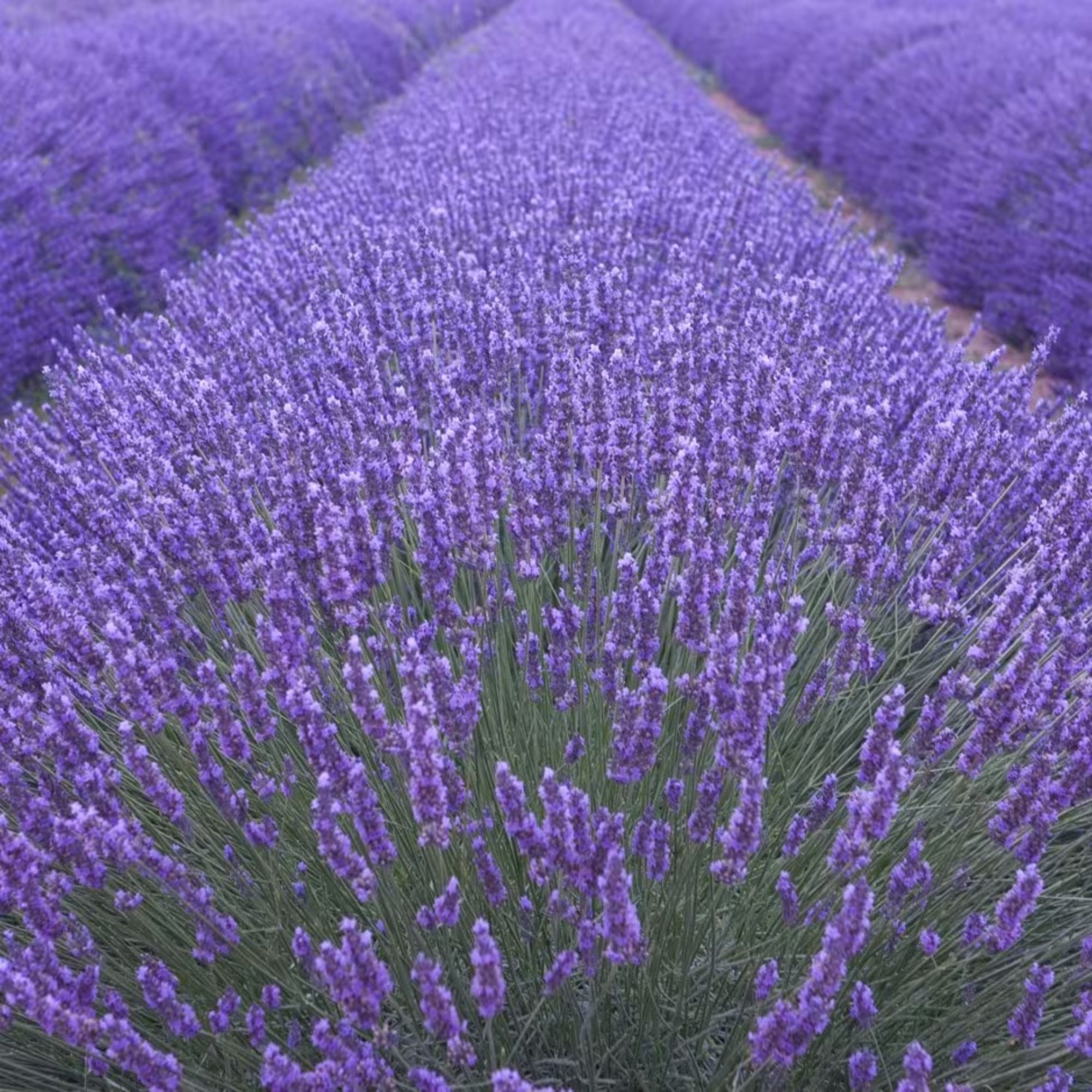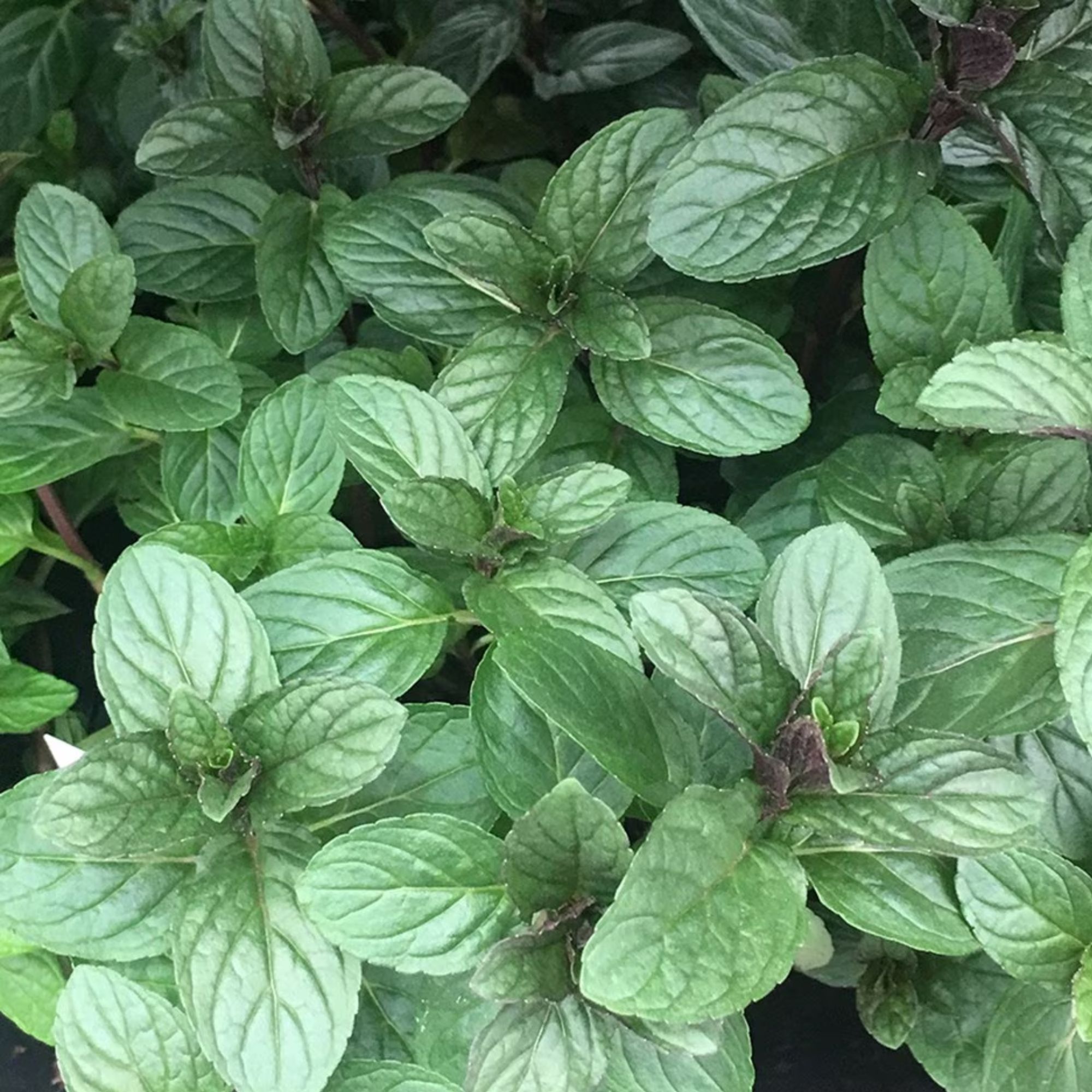5 plants that will naturally repel fruit flies and keep them out of your kitchen
If you're on the hunt for the best natural fruit fly repellent, look this way...

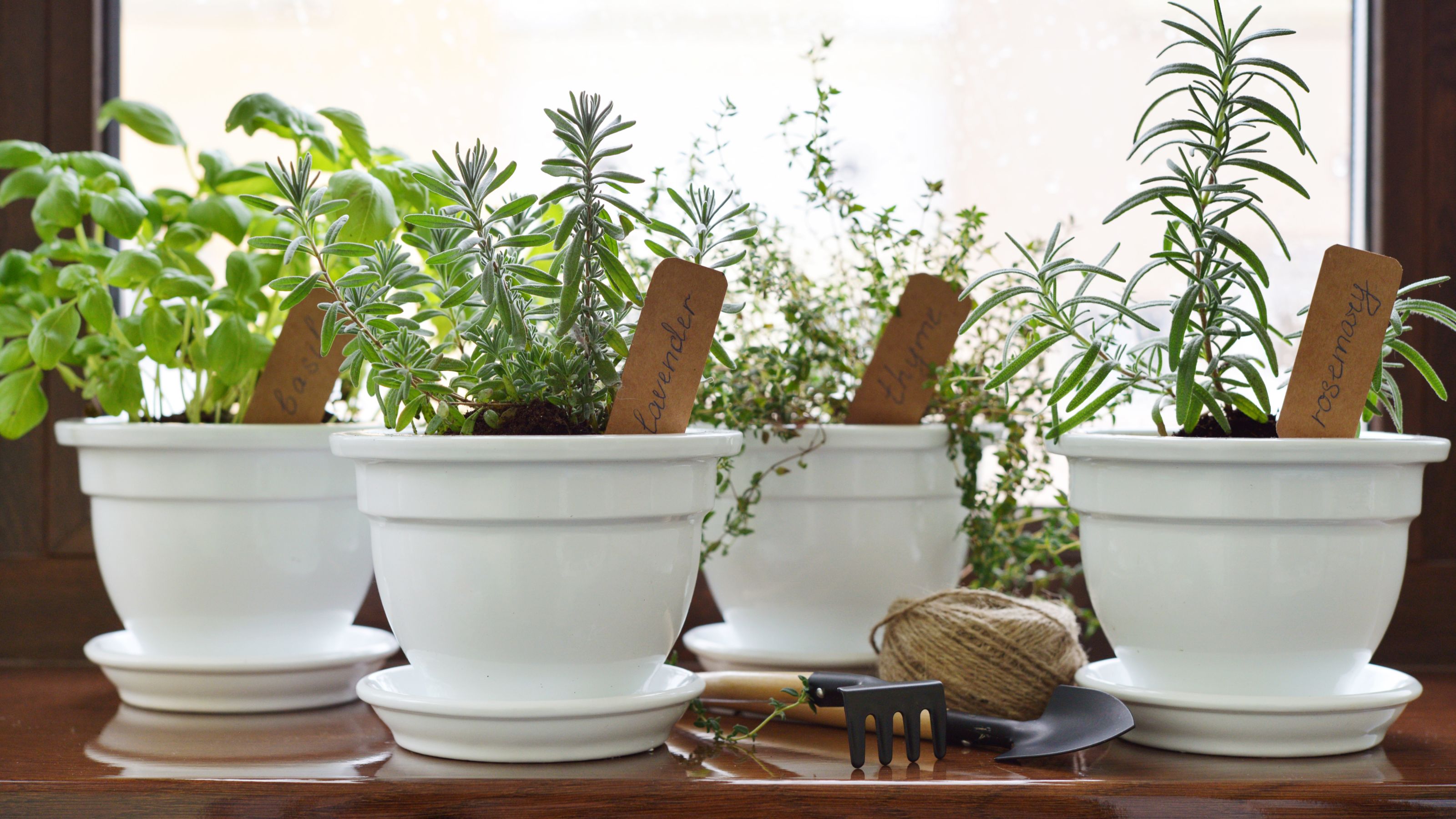
If you're fed up of swatting fruit flies off your banana's then we need to let you in on a hack we recently discovered using herbs to repel fruit flies and keep your kitchen (and home) free of these 3mm pests.
Anyone on a mission to learn how to get rid of fruit flies should know that there really are plants that repel pests out there. And, according to Clare Hooper's now-viral Instagram video, there are some that specifically keep fruit flies at bay.
In the clip, which has a whopping 158,142 likes, Clare explains that she has been using lavender, mint, and rosemary to keep fruit flies out of her kitchen for a month, and that, despite her natural scepticism, it's been working, too.
A post shared by Mrs Clare Hooper (@clarehooper)
A photo posted by on
'It’s been working for us, even on the hot days,' she says simply.
'Coincidence or genius?'
Speaking to Ideal Home about utilising plants that repel fruit flies instead of the internet's other preferred methods for banishing these winged insects, Clare says she had previously been using apple cider vinegar but found the smell incredibly grim.
'I found this new method online and gave it a go for a month – it's brilliant!' she says. 'And made from things I had in the garden, so very budget friendly.'
Clare created a little bouquet of the herbs that she popped near her fruit bowl. You can follow suit with your own little bouquet sat in a bowl or decoratively hung on the wall.
Before you dismiss the hack out of hand, it's worth noting that many gardeners agree with Clare. 'Certain plants are known to repel fruit flies due to their strong scents or natural compounds that are unattractive to these pests,' says Christopher O'Donoghue of Gardens Revived.
Sign up to our newsletter for style inspiration, real homes, project and garden advice and shopping know-how

An RHS-trained gardener with almost two decades of experience under his belt, Christopher set up Gardens Revived with his brother, Andrew, in 2018 to create a thriving family business. Together, they have worked on residential gardens, listed buildings and gardens, flower shows and large estates with some exceeding 70 acres – many with historical significance.
However, Christopher is quick to add that, 'while these plants can help repel fruit flies, it’s also important to manage food sources that attract them by covering or refrigerating ripe fruits, regularly cleaning kitchen surfaces, and disposing of overripe produce'.
This is what you need to know about all the herbs to harvest or dot around your kitchen in pots to keep fruit flies at bay.
1. Basil
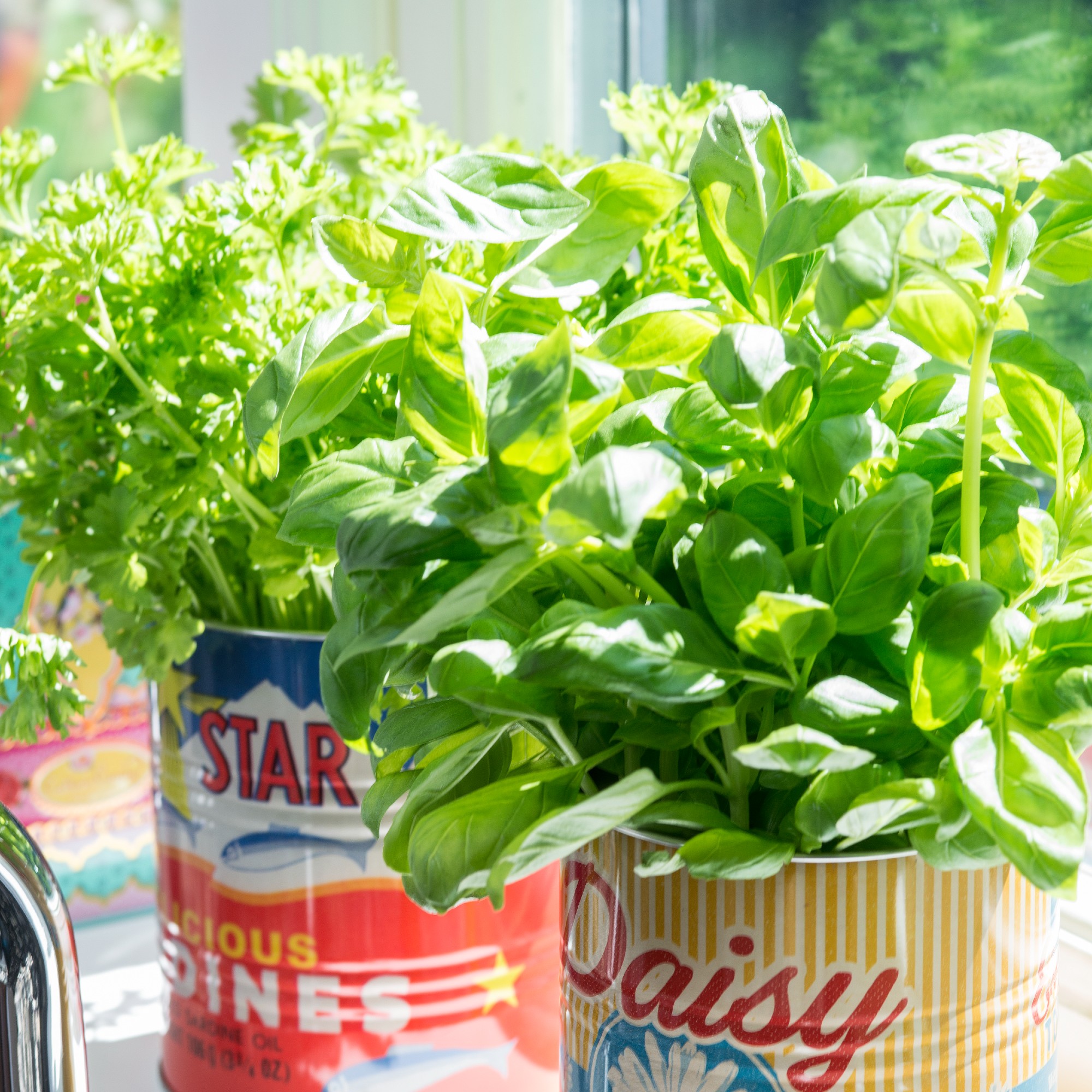
Growing basil is a classic addition to any small kitchen garden or herb garden.
'Basil has a really strong aroma that's known to repel fruit flies and other insects... and make food smell delicious,' says Christopher, who advises you 'place potted basil plants near areas where fruit flies are common, like near fruit bowls or kitchen counters'.
Try the Basil Collection from Sarah Raven for special and tasty variations on the classic herbs.
2. Lavender
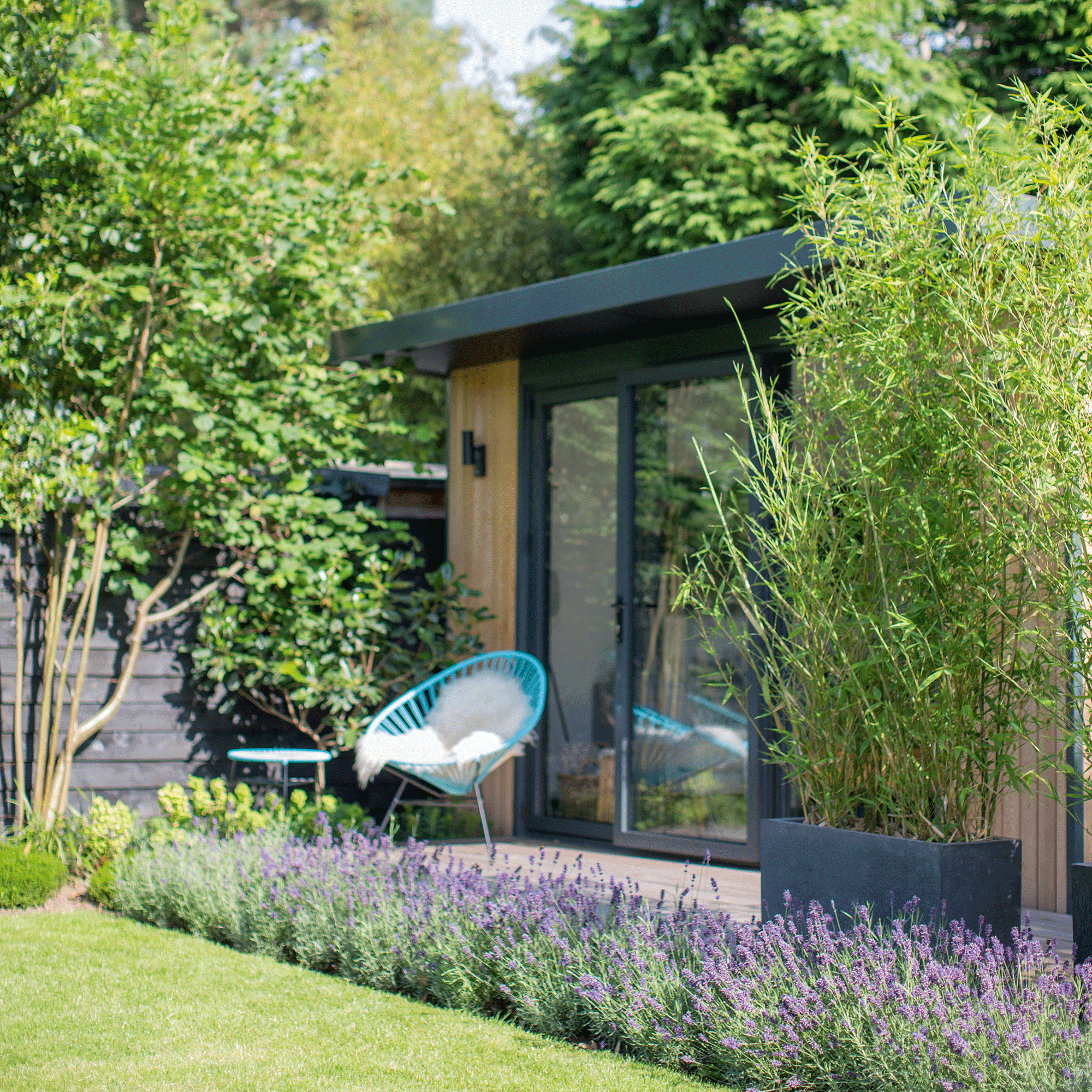
We already had plenty of reasons to learn how to grow lavender, but now we have one more, as it's one of the best plants to repel fruit flies.
'The scent of lavender might be wonderful to you and me, but it is apparently very unpleasant to fruit flies and many other insects,' says Christopher.
'It's a lovely idea, then, to grow perfumed lavender in pots near windows or doorways, or use dried lavender sachets in areas prone to fruit flies.'
3. Mint
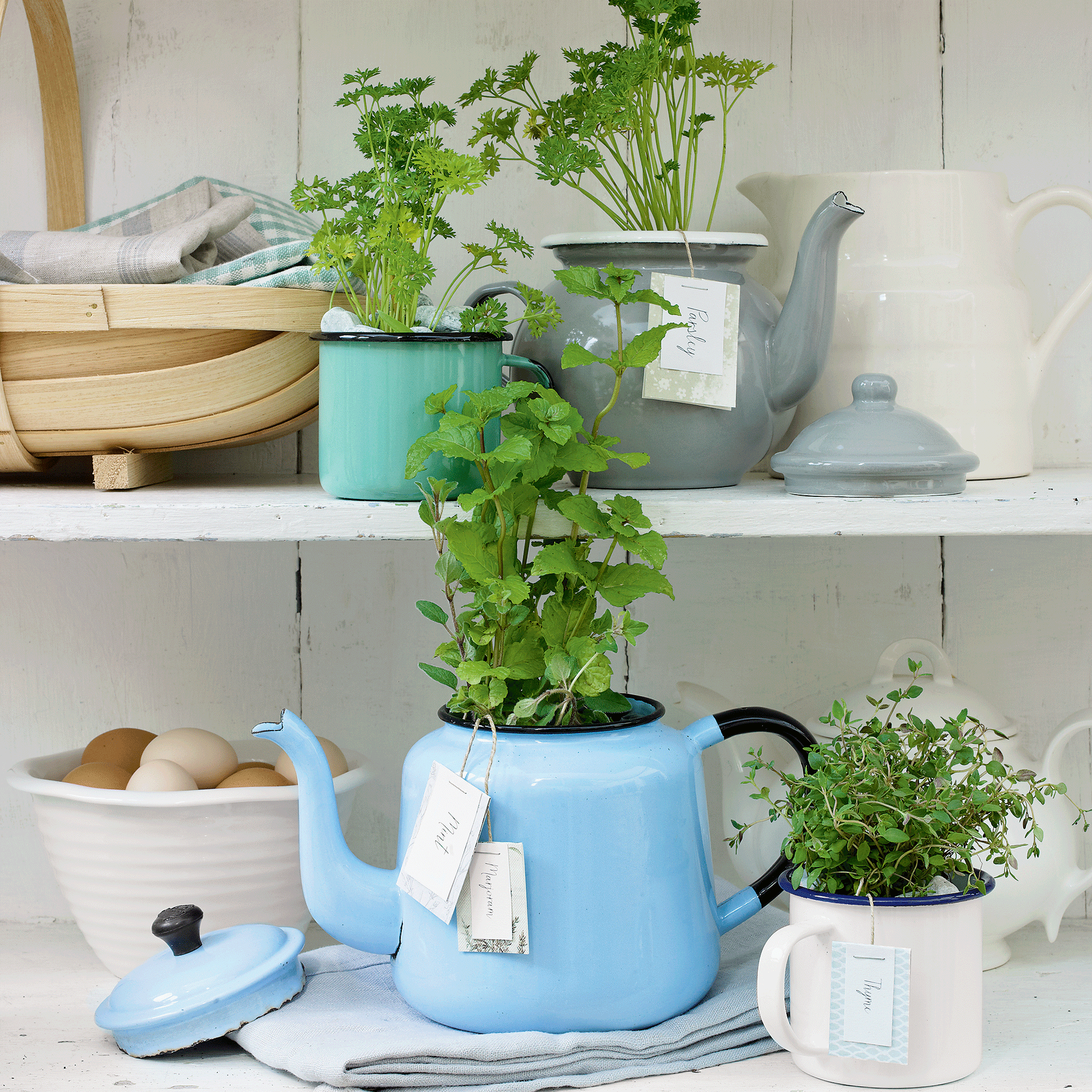
Christopher also suggests learning how to grow mint if you can.
'Mint’s strong fragrance can deter fruit flies,' he says simply, 'so plant mint in pots to avoid its invasive growth in gardens, and place it near fruit bowls in your kitchen.'
4. Rosemary
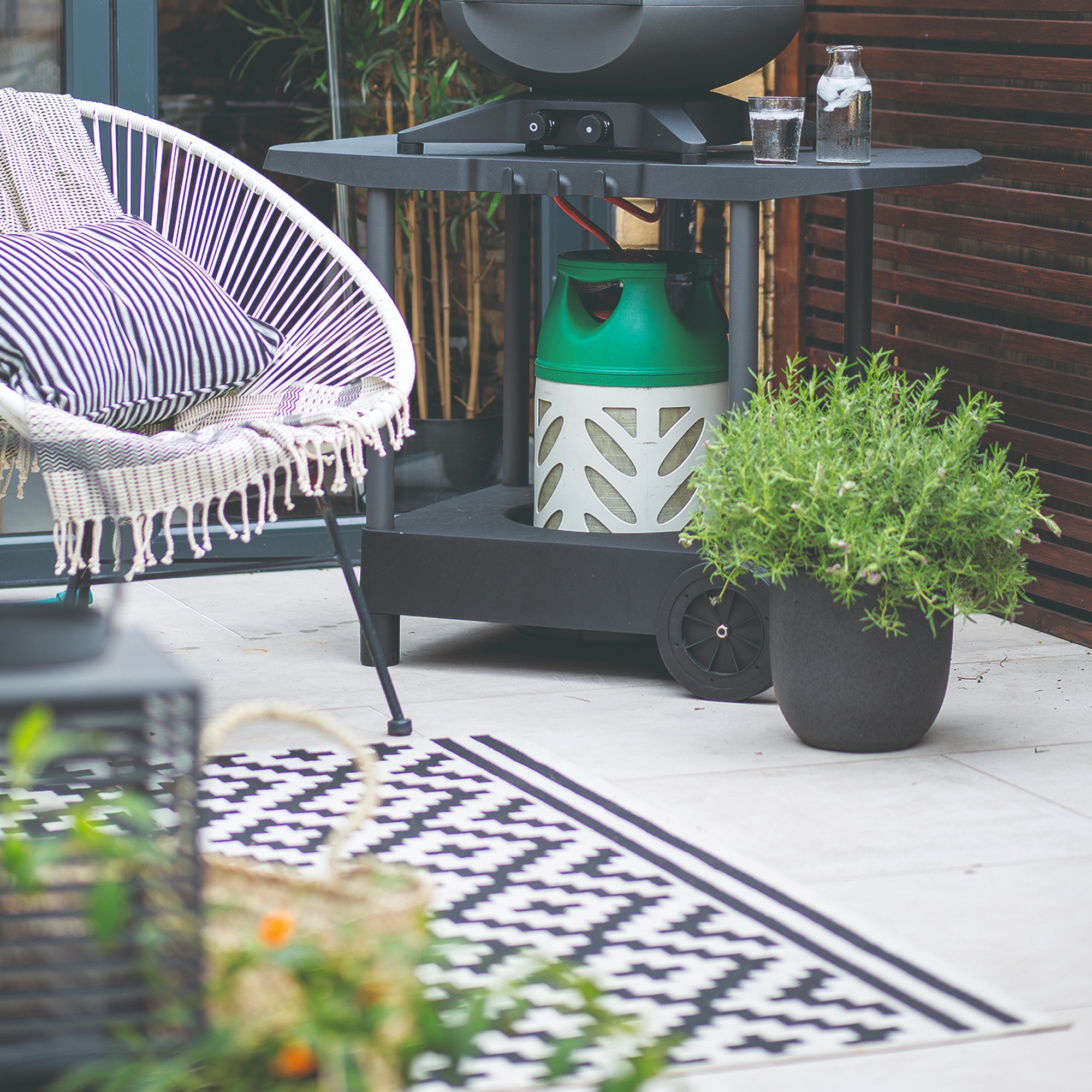
Rosemary is the other herb that is ideal for repelling fruit flies. It is a drought-tolerant plant so can also take a little neglect.
'Plant rosemary in a sunny spot near the kitchen or use fresh sprigs indoors to keep fruit flies at bay,' says Christopher.
You can propagate a rosemary plant with a cutting from another plant if you want to add this plant to your garden for free.
5. Marigold
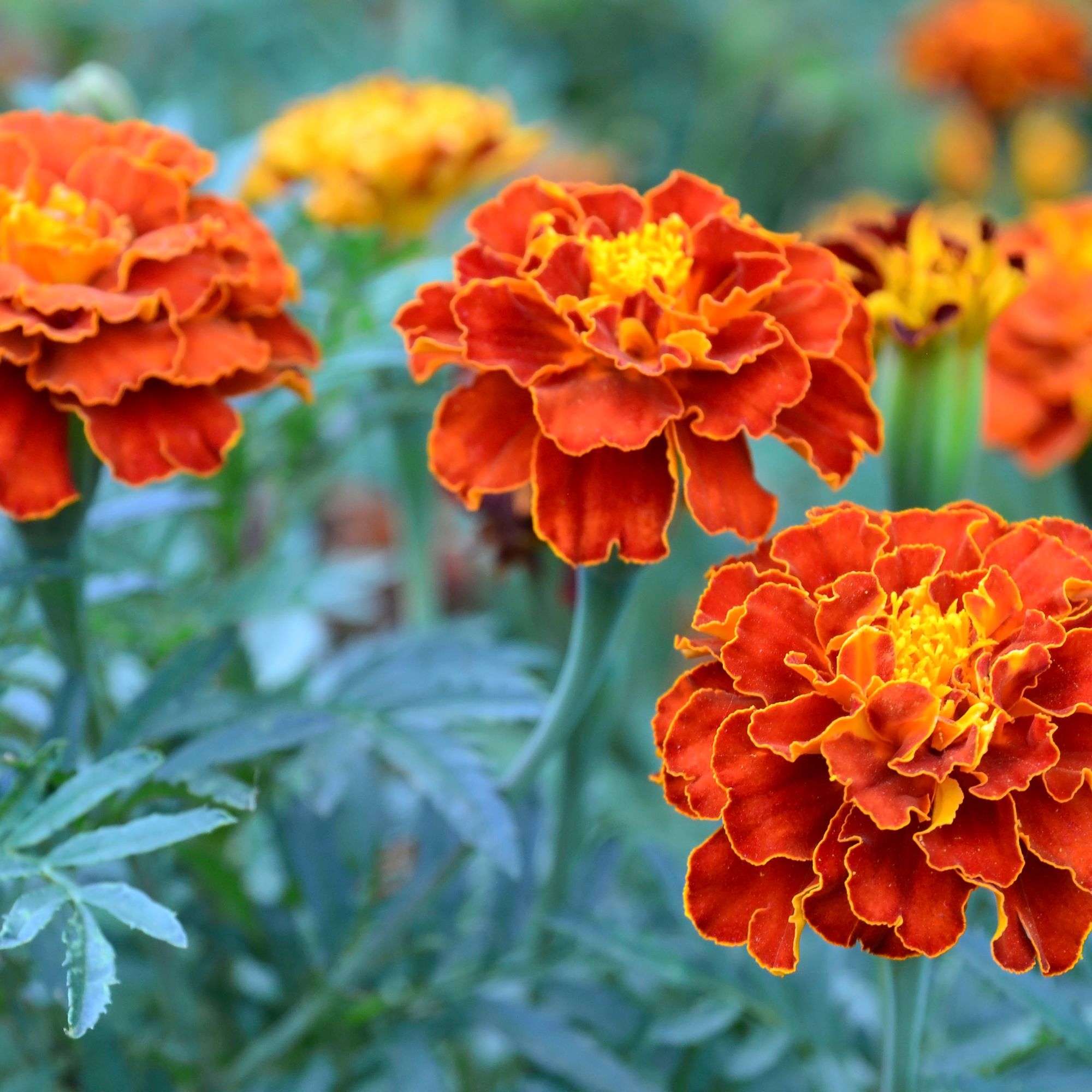
The only non-herb on are list is the marigold, which is ideal for companion planting in your vegetable plot, or planted in a window bo furit flies away.
'Marigolds emit a scent that can repel various insects, including fruit flies,' says Christopher, 'so be sure to plant them around your garden or near windows and doors to deter bugs.'
There's a great selection of marigold seeds to choose from via Thompson & Morgan, if you're keen to give it a whirl.
FAQs
What is the best natural repellent for fruit flies?
There are plenty of natural repellents for fruit flies, but gardeners suggest growing something like rosemary, lavender, mint, basil, or marigolds if you want to keep them at bay.
Lemongrass oil is proven to be highly effective at repelling flying insects, too, with Christopher O'Donoghue of Gardens Revived explaining that 'its citrus scent is effective against mosquitoes, gnats, and fruit flies'.
'Plant lemongrass in pots or use lemongrass essential oil to create a spray for indoor use,' he adds.
What do fruit flies hate the most?
Fruit flies aren't fond of strong smells like lemongrass, eucalyptus, lavender, and other scented herbs.
'Potted herbs and plants are particularly effective when placed near problem areas, such as fruit bowls, garbage bins, or windows,' says Christopher O'Donoghue of Gardens Revived, noting that 'tansy has insect-repelling properties that can deter fruit flies'.
Essentially, then, fruit flies might be kept at bay by certain plants, it's just as important to keep your home clean and tidy. Remember: they may not love scented herbs, but they really love a stinky bin, so be sure to empty yours regularly (and wash your fruit and vegetables) to keep these winged critters at bay.

Kayleigh Dray became Ideal Home’s Acting Content Editor in the spring of 2023, and is very excited to get to work. She joins the team after a decade-long career working as a journalist and editor across a number of leading lifestyle brands, both in-house and as a freelancer.
